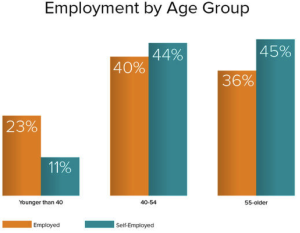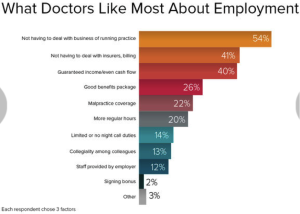People often ask, how did you get into this business? Working as an attorney-agent on behalf of health care professionals is a unique profession, both for its narrow focus and somewhat novel endeavor. When people learn about what we do at Lauth O’Neill, they often express two sentiments: 1) I’ve never heard of an attorney-agent for physicians, and 2) That’s a great idea. We believe the origin of our business is quite telling, and may shed some light on why it is so important for health care professionals to be represented in their employment matters. Keep reading to learn more about Leigh Ann O’Neill, and the reasons behind whyshe founded Lauth O’Neill Physician Agency 5 years ago.
A native of Indiana, Leigh Ann graduated from Indiana University School of Law – Indianapolis in 2006. Following graduation, Leigh Ann began her first legal job as an associate attorney with Krieg DeVault, an Indianapolis-based law firm. Leigh Ann worked in the Health Care Practice Group and focused her efforts exclusively on issues related to the health care field, both on behalf of physician-clients and hospitals and practice group employers. Given Leigh Ann’s focus and roots in the health care field, it was quite fitting that she married a physician. Leigh Ann’s husband, Kevin, is an orthopaedic spine surgeon. By his side throughout the (many!) years of grueling training, multiple out-of-state moves, Board examinations, and countless job interviews, Leigh Ann had a front-row seat to everything that physicians go through when pursuing employment. Witnessing all that this entailed, not only for Kevin but also for all his friends and colleagues, Leigh Ann quickly realized that physicians needand deservehelp.
Q & A with Leigh Ann O’Neill:
At what point in your husband’s job search process were you really convinced about the importance and relevancy of attorney-agent services?
I distinctly remember the weeks leading up to my husband’s Boards exam, right after he finished residency and before we moved to St. Louis for fellowship. We, and our two young sons, were crammed into a small apartment, and Kevin often retreated to the balcony to get some quiet space to study. On top of all of that, he was searching for names and contact information for potential employers. He wanted to engage in a thorough job search and be sure he considered all opportunities that were available to him. All of that searching took up a lot of time. It was then that I had the light bulb moment- it’s not that physicians can’t job search on their own, it’s that it’s a completely inappropriate use of their valuable time. Not to mention, once they get to the contracting phase, they really need help. After all, they’re doctors, not lawyers. Having worked on the other side of things representing hospitals and practice groups, I know how physician employment contracts are drafted and what they try to accomplish. I fully appreciated the importance of having a lawyer assist a physician through this process, and that drove me to found this company- to create a comprehensive service for physicians who are entering this important phase of their careers. Now, when I describe to folks what I do, the quickest way to sum it all up is by saying “we’re like Jerry Maguire for doctors.” At the end of the day, if a football player needs a professional agent on his side, then there’s no question that highly trained physicians do as well.
In your opinion, why do physicians need the counsel of an attorney-agent? Shouldn’t physicians be able to trust their future employers?
What we see time and time again with our clients is this disparity that occurs somewhat suddenly and often unexpectedly as physicians finish up their training. Through internship, residency and fellowship, physicians have enjoyed the safety and comfort of being surround by their teachers and mentors- in many situations, those mentors are the same people who offer them a contract. So in quick fashion, the relationship goes from being that of student/teacher, to employee/employer. And that is a nuance that many physicians take for granted. The relationship of employee/employer is inherently adversarial. Not in the sense that you are entering a fight against one another, but from a legal standpoint, your interests are somewhat at odds. Think of it this way- the employer undoubtedly hired a lawyer to draft the employment agreement that is offered to you- that means the agreement is drafted in favor of the employer. Shouldn’t the physician-employee enjoy the same comfort of legal representation? We firmly believe they should!
What services do you offer physicians and other health care providers?
For physicians, we offer a concierge-style job search service as well as contract review/analysis and negotiation. For non-physician providers, we offer a more cost-efficient version of our contract review and analysis service, which is slightly more limited in scope. Lastly, we also are sometimes hired by physicians to handle their state licensing needs, as we’ve found that obtaining a new state medical license is an incredibly time-consuming and burdensome process that most physicians don’t necessarily have time for.
What do you feel is the most valuable aspect of your work on behalf of physicians?
When we provide our Premier Opportunity job search service to clients, we offer a start-to-finish service that covers all bases of the job search. So it is incredibly time-saving for the client. But really the most important part of this service is the fact that it is so comprehensive. Physicians who didn’t hire us to do this service for them have called us, and they find themselves stuck, right near the end of training, and they finally have a job offer in front of them. They may have only interviewed one place, and this is the only job offer they have. Not only are they under immense pressure to accept a job due to financials reasons, like having a family to support, and needing to begin making payments on gigantic student loans, but the pressure to take this job is crushing because it’s the only job offer they have. So they find themselves with zero leverage, because they have no other options, and the worst part is, that once they take that job, they are very likely to not be happy with it. Time and time again, we find that physicians who embark on their job search early, and comprehensively, end up in a happier place, job-wise. The more interviews you have, the more practice models you get to experience, and that allows you to make a much more informed decision about what your dream job really is. If you don’t get out there and see what the full market really has to offer, you are at a high risk of taking a job that undervalues you, and that may not be the right fit for you.
And that’s really only part of the equation. You also have to consider the positive impact of having a legal advocate on your side. I have a special perspective, as the wife of a physician and a mother. I know how a physician’s personal life and lifestyle can be seriously affected by their employment contract and duties, and so I have a particular understanding of what factors are most important to consider and straighten out on the front end of things. For example, take a typical non-compete covenant. If you are looking at a job that is in your end-all, be-all location, you better be sure the non-compete is something you can tolerate if the employment relationship does not work out for some reason. If the non-compete itself isn’t very negotiable, then you will need to weigh that risk against the other benefits that can perhaps be added to the agreement.
Do you work only on behalf of physicians, or do you also represent employers?
We only work on behalf of providers. We made that decision very early on, and it really sets us apart from others who work in this space. If you take a recruiter, for example, you cannot feel that they have your best interests at heart- they cannot be objective the way we can. That is because they are paid by the employer for any job they fill. We are only paid by our clients. We aren’t worried about the employers- they have a team of lawyers on their side looking out for them. We only care about our clients.
What should health care providers be aware of/cognizant of when securing counsel/an attorney-agent?
The first thing to check into is whether the attorney actually has experience in physician employment matters. At Lauth O’Neill, Laura Lauth and I handle every case and client ourselves. We are both licensed attorneys, and we are licensed in four states. When we work for a client taking a job outside of those states, we consult our local counsel partner in the given state to make sure all state-specific considerations have been made. So it’s important to ensure that whomever you choose to work with is well-versed in this type of legal work, and can cover all bases for you. Also, make sure you understand exactly what the attorney is going to do on your behalf. Determine if there are any limits on their review and analysis of the contract, and whether they have access to compensation data. And be aware of how you’ll be billed. We always work on a flat-rate fee basis, and only charge an hourly rate if and when our clients request more specialized representation toward negotiations. Finally, make sure you are comfortable with the level of communication and responsiveness you will receive. We always communicate directly with our clients and handle things personally, making the process more personal. Be aware of certain “attorney services” advertised online, where you may not be able to actually speak with someone or put a face with a name. Those options may be more cost-efficient, but often times result in a far less-personalize and comprehensive service.
Contact Leigh Ann with any questions about the services offered by Lauth O’Neill. (317) 989-4833; loneill@lauthoneill.com.


 Why the shift?
Why the shift?

